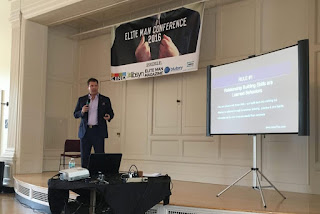Why Leaders Need to Vulnerably Open Up About Failure
Failure is almost always spoken about in the past tense. That creates an artificial safety net. There isn’t true vulnerability in that. Love this article (“Opening Up About Startup Failures and Vulnerability”) in “First Round” that goes into it. Read on.
Leaders, entrepreneurs, founders and others many times open up and share their failures ONLY after they are successful. But does that really help others who are in the midst of struggling? Founder Jeff Wald shares what it means to get raw and vulnerable about failure in the “present tense.“
“CHALLENGE #1: GETTING VULNERABLE BY MAKING IT PERSONAL”
“Failure’s become trendy. We live in a culture of innovation and pushing envelopes, which requires failure,” Wald says. “But I’d draw a distinction between failure and vulnerability. We’ve confused the idea of putting failure out into the market as making yourself vulnerable, when it isn’t. Talking about how your startup didn’t work or how your product fell flat isn’t the same as digging into how that made you feel or how you failed specifically as a leader — there’s a degree of separation there. You actually need to put yourself out there.”
Here’s the difference between talking about failure and getting truly vulnerable: Vulnerability is necessarily personal while failure is not. Don’t conflate the two.
Sharing tales of startup failures, market defeats and company losses is not necessarily an exercise in true vulnerability, especially when there’s a safety net of follow-on success to fall back on. “I only got comfortable mentioning Spinback after there was a successful end to that story, when there was no downside for me,” he says. “Given where I am now, everyone automatically views the failure as a stepping stone to that success. So even though I’m more forthcoming about it, talking about the company going under doesn’t really make me vulnerable. It’s an abstract layer, a discussion in which I’m still shielded. Talking about the depression that went along with it and the inability to cope with the failure — that’s a little bit more down the road of vulnerability.”



Comments
Post a Comment